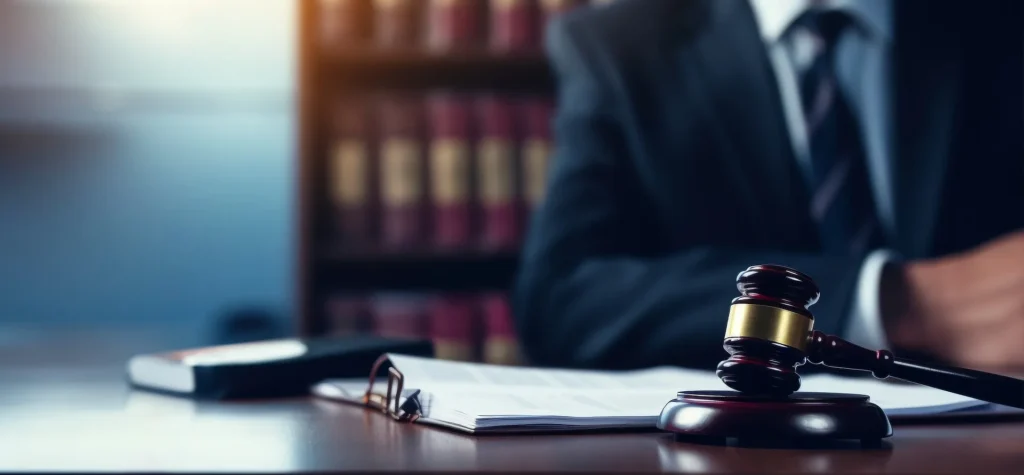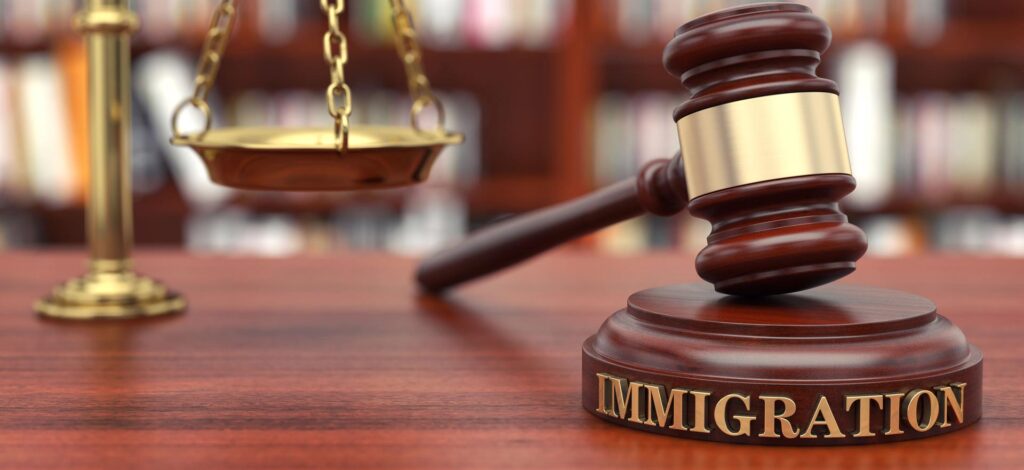Acquired Brain Injury Claims
Expert, compassionate and trusted legal advice
for all Acquired Brain Injury Claims
Contact our expert acquired brain injury claim solicitors today to discuss your case.
Request A Callback
Highly Experienced team
Your Trusted Acquired Brain Injury Claims Solicitors
The turmoil following an acquired brain injury can feel overwhelming. You and your loved ones face the profound effects of the injury on your physical, emotional, and even financial well-being. At Michael Kellher Solicitors, we have spent years uncovering the complexities of such cases. We have handled many cases and have a good sense of what works and what doesn’t when it comes to dealing with a dispute that involves the challenges resulting from an acquired brain injury.
Why choose our Brain Injury solicitors?
Our clients are the reason we exist, and we serve them with confidence and ease. At Michael Kelleher Solicitors we have decades of combined experience guiding clients through the legal processes. We have represented men and women from many walks of life, dealing with an even greater variety of legal situations. Your medical negligence claim is unique and we give every case the attention and focus it demands.
Call 01-6144565 today for expert advice on the next steps.
Hidden Symptoms of an Acquired Brain Injury (ABI)
An ABI can manifest in many subtle ways that are sometimes missed or misdiagnosed as other conditions. It does not always show immediate, obvious symptoms, which can make it hard to identify at first. Some that we see often are:
- Memory Problems: People with an acquired brain injury may be aware that they might have a memory issue but they’re not always great at recognising it on a day-to-day basis.
- Behavioural and Emotional Changes: Sudden shifts in mood, irritability, or a sense of being “down” can indicate an ABI. Changes in personality or social behaviour, like a sudden withdrawal from usual activities, are also common.
- Sensory Issues: Sensations may seem different, if not entirely “off,” because brain areas responsible for processing these vital inputs can be damaged. While not always visible, or frequently in evidence, a two-way relationship exists between physical symptoms and these types of changes.
- Difficulties in Speech and Language: When a person has a brain injury, they may have difficulties that seem subtle yet are significant. They may have trouble with words—finding them, saying them, or understanding them. Communication and social interaction may be affected.
- Sleep Issues: Not being able to sleep, waking often, or sleeping too much are signs of a possible brain injury in some instances. Sleep issue problems can also fan the flames of cognition and attention problems, fatigue, and other non-specific “just don’t feel right” issues.
- Fatigue: There is no way around it. Brain injuries can make people very, very tired.
- Seizures: These can range from mild to some intense convulsions.
- Coordination Problems: Coordination and motor skill impairments are also pretty common. Because of these problems, a person may have more difficulty doing tasks that require anything from walking to buttoning a shirt, to writing.
- Less Awareness and Alertness: Some individuals have no clue about the stuff around them when they are trying to navigate life post-ABI. This has a major impact on their ability to respond appropriately and in a timely manner to everyday situations. If life were a series of rapids that you had to navigate in an inflatable canoe, then the aftermath of brain injury would be an almost certain tipping over and swamping of said canoe.
- An Altered Sense of Time: This can be a subtle symptom of brain injury. This can involve difficulty estimating time intervals, or feelings that time is passing either too quickly or too slowly.
- Inability to Regulate Body Temperature: This can be another problem, leading some people to feel weirdly hot or cold when, in fact, the environment is perfectly normal.
Brain Injury Claim Process
Medical Records: These are the critical documents that make up an injury’s treatment “story.” Hospital records, doctors’ reports, and specialists’ assessments form the detailed medical narrative that chronologically outlines what happened to the victim medically after the injury up to the present. Independent medical experts will read your notes and records and prepare a medical legal report on (breach of duty and causation). This report is used to ground your claim and establish the proofs required to shoe that the hospital/doctors were in fact negligence and that their negligence caused your injury.
Examples of Evidence
Accident Reports: These are the official accounts from the scene of the accident, like police reports, that detail what happened. Witness Statements: These are the “who, what, where, when, and how” accounts from people who saw the accident and can back up the injuried party’s story. Photographic and Video Evidence: This is any still or moving visual evidence of the accident, the injury, or the aftermath. Such evidence can capably portray the scene of the accident and the impact of the injury in both what was once normal and what is now abnormal.
Personal Testimonies: Statements from the injured party and their family about the injury’s effect on day-to-day life and on their relationships with each other. This is extremely important as the victim’s day to day limitations will have a significant impact on the medical reports obtained from the relevant experts.
Statutory Time Limits
These are the time limits imposed by law within which an injured person must bring a claim or else lose the right to claim altogether.
Acting quickly has two main benefits. It keeps the evidence fresh, which usually helps establish what happened and who was responsible for it, and it allows the claimant to pursue necessary medical care without worrying about paying for it until the matter is resolved.
Future Care
You are entitled to recover the cost of your care into the future. This has a massive advantage as victims as your financial worries about the future will be somewhat relieved. In establishing your needs into the future your legal team will look to see what happened, and what kind of care and assistance you will need to get back to some semblance of normal life. We project the long-term rehabilitation and assisted living needs of the injured party to ascertain the costs involved accurately. Recovery from the types of injuries we deal with in this firm often is incomplete and leaves the injured party with a permanent disability, our projections almost always include items such as future rehabilitation, future neuropsychological testing, occupational therapy aids and devices, assisted technology, architectural amendments to the family home and compensation for long-term care.
How Much Is the Compensation in Ireland?
Several factors affect how much someone will be awarded for a personal injury claim. First and foremost is the injury itself. The nature and extent of the injury and its physical and cognitive toll on the claimant are the prime determinants of how much money the claimant will get. Even if a brain injury doesn’t turn out to be life-threatening, it can still drastically affect not just the life of the claimant but also the lives of the people who are close to the claimant.
Beyond the emotional damage an injury can cause, it can also lead to significant financial problems for the injured party and their family.
What are the criteria for Acquired Brain Injury?
The critically important criteria and characteristics for defining and diagnosing an acquired brain injury:
Timing: The injury occurs postnatally and distinguishes the ABI from congenital brain injuries or other developmental disorders diagnosed at birth.
Damage: The ABI implies some degree of damage or disrupted functioning within the brain’s cells, structures, or both, affecting areas that are or were critical for normal functioning. The damage may involve brain cells (neurons), structures, or both and almost certainly interrupts one or more critical neural pathways in and out of the brain.
Causes: ABIs result from a variety of external and internal factors. External forces produce traumatic brain injuries (TBIs). Internal factors often result in non-traumatic ones.
Other possible outcomes: The impact of an ABI varies widely and can result in physical, cognitive, and emotional or behavioural impairments, and sometimes in sensory loss. Another wide-ranging effect is that the ABI can disrupt a person’s or a brain’s ability to compensate and recover. Recovery may require rehabilitation and often involves a long, hard journey back to some semblance of a pre-event normal.
Medical diagnosis. Medical professionals put together a combination of the person’s medical history, neurological exams, imaging tests (like CT or MRI scans), and cognitive assessments to make a diagnosis. They take a person’s history and then use signs and skills to evaluate the individual’s condition.
What Are 4 Examples of Causes Attributed to Acquired Brain Injury?
Acquired brain injury (ABI) can stem from a number of different events that occur after birth. Four of the most common examples are as follows:
- Traumatic brain injury (TBI) takes the top spot. TBI is caused by the application of an external force (or forces) to the head. The most common causes include falls, automobile accidents, sports events, and assaults. These kinds of injuries can lead to anything from the mildest of concussions to much more serious brain bruising, bleeding, or even total loss of function in parts of the brain.
- Strokes are the second most common cause of acquired brain injury. A stroke happens to a person when the blood supply to the brain is suddenly disrupted. Strokes can occur due to any number of different kinds of blockages and ruptures in blood vessels located either in or leading to the brain.
- Brain infections, like meningitis or encephalitis, can invade and damage the delicate neural tissue of the brain. Infectious agents like bacteria, viruses, or some other pathogens can usually be cataloged as the causes of these conditions. If untreated, they can erode neurological and cognitive functions to a devastating degree.
- The hits a brain takes from either infections or impacts can lead to similar appearances of the resultant damage—splotchy bruises on the surface of the brain, blackened areas of necrotic (dead) tissue, and/or swollen (edematous) regions.
Frequently Asked Questions
An acquired brain injury (ABI) is seen as a neurological disability. It arises from a brain damage that occurs after a person is born—for example, from a stroke, tumour, or trauma—that affects a wide spectrum of physical and cognitive functions and emotional and behavioural functioning.
Impairments resulting from an acquired brain injury (ABI) can occur in many forms. Some ABI survivors might find that their ability to perform tasks requiring large motor skills remains intact, but those same individuals might struggle with anything that requires fine motor control or the use of assistive technology.
If you or a loved one suffered a brain injury as a result of someone else’s negligence or wrongful actions, you have the right to seek compensation. Brain injuries that may qualify for legal action often occur in accidents, involve medical malpractice, or happen in other situations where fault can be definitely assigned to another person or group. For you or your attorney to make a claim, you must be able to demonstrate both that a brain injury occurred and that someone else was the cause.
Claims for children can cover not just the enormous costs of immediate and long-term medical care but also the staggering amounts typically involved in rehabilitation and retraining a child who has suffered a damage to the brain.
When seeking compensation for a brain injury, several factors will determine the amount awarded. The most significant is probably the type of traumatic brain injury. Next is the location of the injury and its effect on the victim’s life—present and future.
In Ireland, the normal timeframe for lodging a claim after the date of the injury is two years. There are exceptions, especially for claims made on behalf of minors, the timeframe extends well past the normal two years, with the countdown starting only when the child reaches 18.
Funds received from a successful brain injury claim can pay for long-term neuromedical need specifically, medical care, rehabilitation, and home adaptations (if necessary).
In Ireland, people affected by acquired brain injury due to medical negligence might qualify for government assistance to meet their care and support needs. The available benefits include the Disability Allowance, the Carer’s Allowance, and various health and housing supports. Eligibility for these benefits, and the processes involved in applying for them, are best navigated with the help of a social worker or a benefits adviser. They can ensure that the application process is handled in a timely and effective manner. The financial support provided by these benefits, combined with any compensation awarded by a court, can help ensure that the necessities of life are covered.
Get the Compensation You Deserve for Your Acquired Brain Injury
If you have suffered a brain injury due to negligence, your whole life can change in an instant, and the injury can profoundly affect your health, your finances, and your overall well-being. You have the right to seek compensation. You can pursue a claim to help pay for the resources, treatments, and therapies needed to get your life back on track.
The complexities and challenges of a brain injury case are not lost on our committed legal team. We are a tenacious bunch, guided by our collective experience and a genuine care for our clients, and we work hard to merit your trust and to earn every penny of the compensation for which we negotiate. Our goal is your peace of mind.
You can have complete confidence in our expert solicitors. They have years of experience resolving claims similar to yours and do their utmost to ensure a satisfied client at the end of the process. Contact us for legal advice and representation concerning traumatic brain injury and non-traumatic brain injury resulting from clinical negligence.
Call us today to discuss your options.
If you are dealing with a legal issue, our solicitors will be happy to speak with you about your options You can contact us by phone on 01-6144565 or call to visit us at 149 James’s Street, Dublin 8. Telephone: 01 614 465 Email: info@mks.ie



